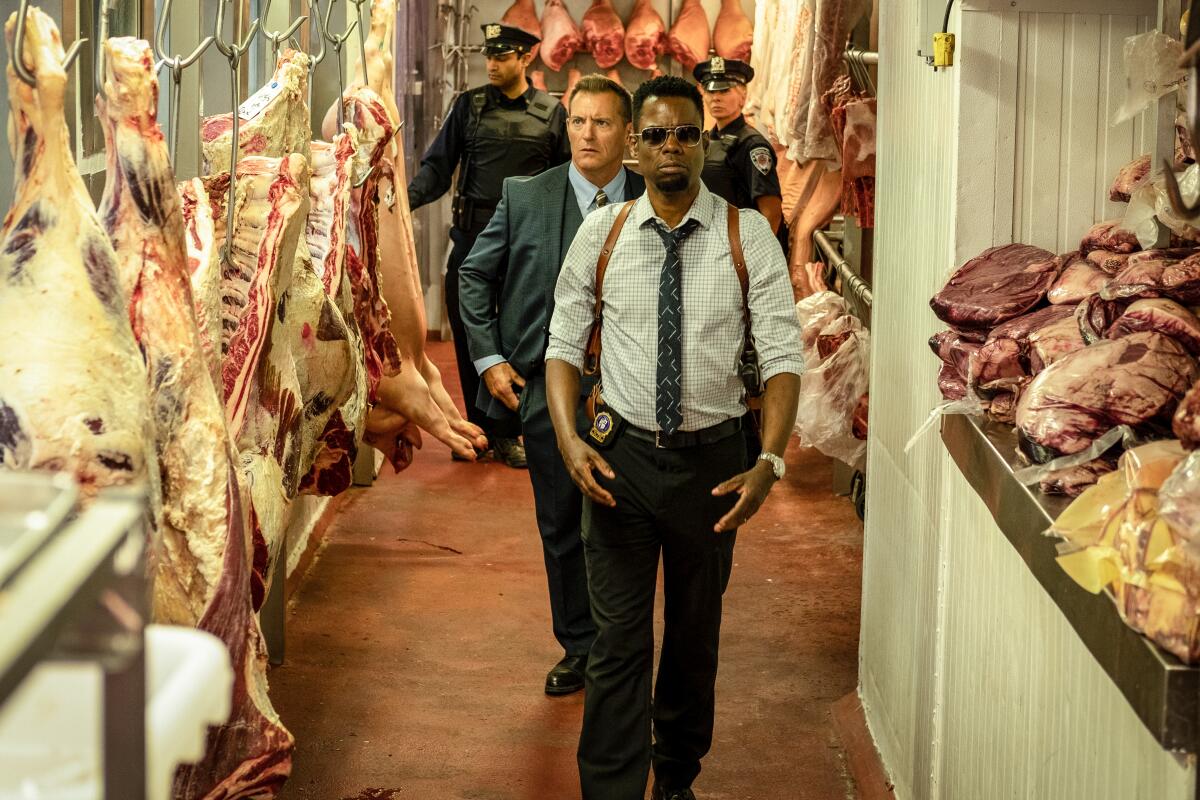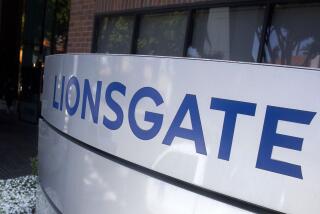Why Lionsgate is buying a stake in ‘Scream’ owner Spyglass

Movies once owned by the Weinstein Co., including Oscar winner “The King’s Speech,” have found yet another home.
The film and television studio Lionsgate said Thursday that it has “acquired the vast majority” of the 200-film library held by Spyglass Media Group, which controls the catalog once owned by Harvey Weinstein’s former company.
Lionsgate is adding acclaimed titles such as “Django Unchained,” “Silver Linings Playbook” and “Fruitvale Station” to its arsenal of content as it looks to better compete amid an entertainment arms race.
Santa Monica-based Lionsgate, known for franchises including “The Hunger Games” and “Saw,” is also acquiring a 20% stake in Spyglass Media, based in Century City.
Inside the business of entertainment
The Wide Shot brings you news, analysis and insights on everything from streaming wars to production — and what it all means for the future.
You may occasionally receive promotional content from the Los Angeles Times.
The added movies, which also include “Scream 4,” “Paddington” and Quentin Tarantino films “Inglourious Basterds” and “The Hateful Eight,” build on Lionsgate’s existing stockpile of 17,000 film and TV titles.
Lionsgate Television has also established a first-look deal to make television shows from Spyglass.
Financial terms were not disclosed.
In recent years, Lionsgate has focused much of its energies on building Starz, the pay-TV network it bought for $4.4 billion in 2016.
The Spyglass deal comes as studios and media companies are bulking up their libraries of titles that they can remake, reboot and repurpose as movies, TV shows and other forms of entertainment.
Spyglass, for example, is producing another “Scream” film set for release next year, along with an upcoming “Hellraiser” reboot.
Unlocking MGM’s valuable library will be harder than it sounds, according to people familiar with the company.
Spyglass’ television shows include the long-running fashion reality series “Project Runway.”
Film libraries have become particularly valuable as streaming services try to quench a never-ending thirst for content.
Amazon is in the process of buying Metro-Goldwyn-Mayer Studios for $8.45 billion, largely for its 4,000-film vault and TV production capabilities. Variety this week reported that indie studio A24, known for movies including “Moonlight” and “Uncut Gems,” had been seeking bids of up to $3 billion.
Spyglass Media will continue to be run by its chairman and chief executive, Gary Barber, the former MGM chief executive who launched the venture with Dallas-based private equity firm Lantern Capital Partners in 2019.
“This agreement continues to grow our valuable portfolio of IP while partnering us with Gary Barber, one of the leading entrepreneurs and content creators in the business,” Lionsgate Chief Executive Jon Feltheimer said in a statement.
Spyglass Media was built from the rubble of the Weinstein Co., which declared bankruptcy after its co-founder Harvey Weinstein was accused of sexual harassment and assault by more than 80 women.
The ex-mogul was convicted last year of committing a criminal sexual act and third-degree rape and given a 23-year prison sentence.
The prized Weinstein Co. film and TV assets were acquired out of bankruptcy court by Lantern, led by Andy Mitchell and Milos Brajovic, for $289 million in 2018.
Lionsgate had previously considered bidding for the Weinstein assets during the bankruptcy process but decided not to.
Besides Lantern, Spyglass’ backers include Warner Bros., Italian distributor Eagle Pictures and British cinema giant Cineworld Group, which owns Regal Entertainment.
Like other studios, Lionsgate’s film business has struggled during a pandemic that kept movie theaters closed for much of the last year and hobbled productions, though its library has continued to generate revenue.
More to Read
Inside the business of entertainment
The Wide Shot brings you news, analysis and insights on everything from streaming wars to production — and what it all means for the future.
You may occasionally receive promotional content from the Los Angeles Times.












